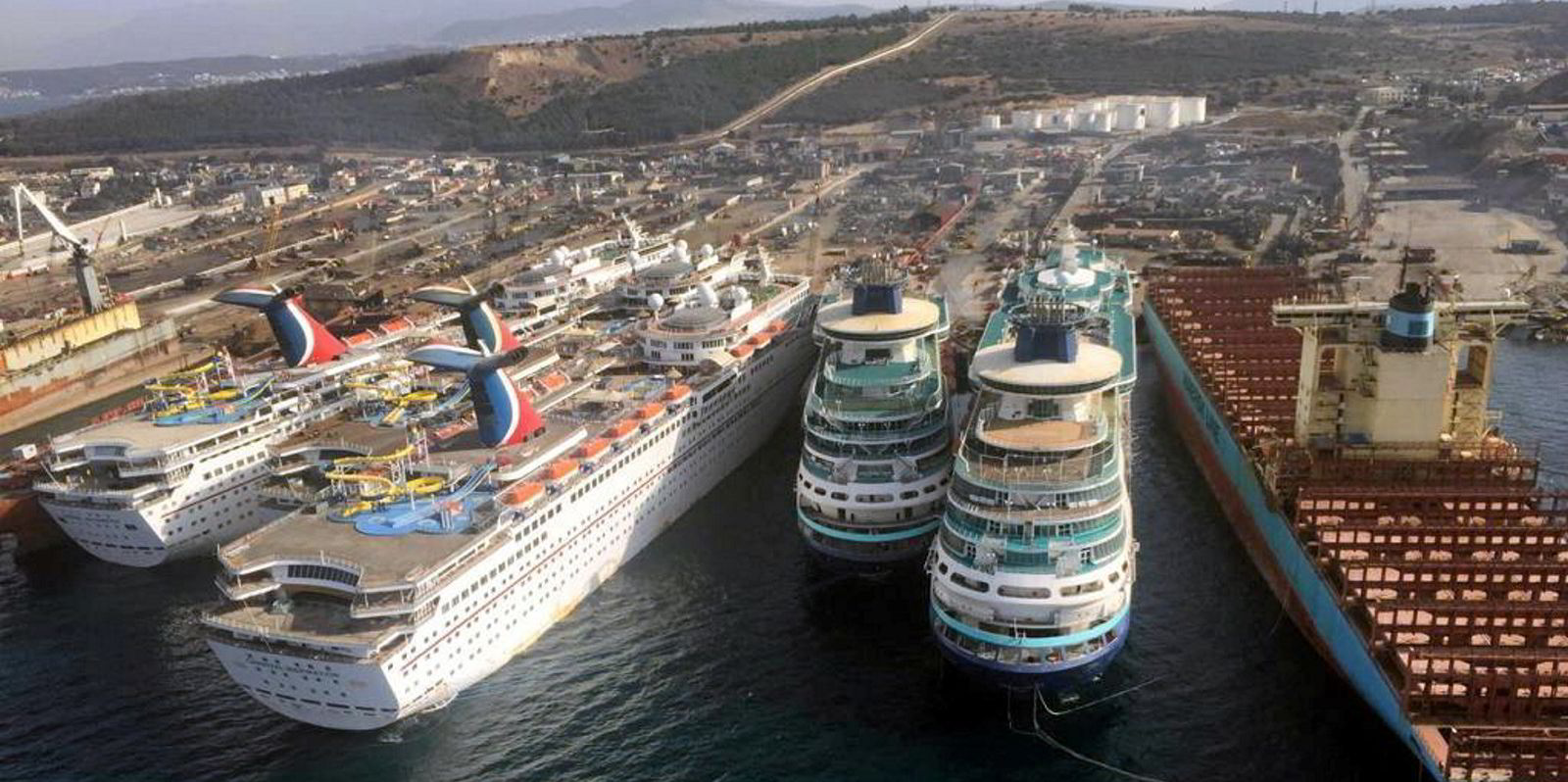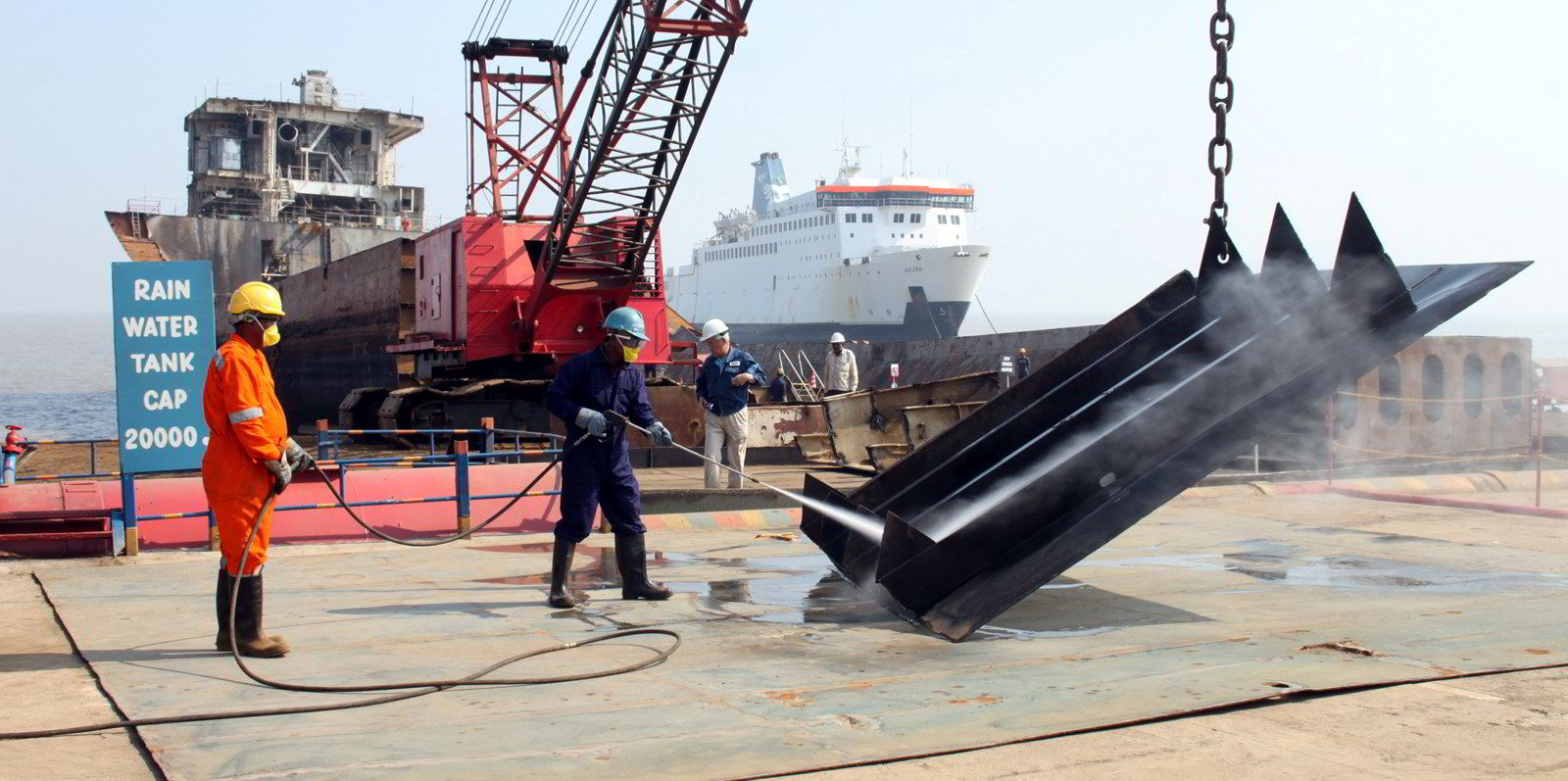Next year is likely to see a near doubling of ship demolition volumes as skyrocketing fuel prices, decarbonisation regulation and an ageing fleet push an increasing number of ships into retirement.
Demolition volumes of more than 40m dwt are being forecast by UK broker Clarksons for 2023 — the highest level since 2018 after struggling to get over 25m dwt last year with a similar figure expected for this year.
Increased scrapping volumes will be a positive development for shipping’s efforts to decarbonise.
The replacement of a generation of notorious gas guzzlers, built around the 2008 newbuilding boom, will play a critical role in reducing the industry’s carbon footprint.
Many of these ships will struggle to meet next year’s incoming regulations, such as the Energy Efficiency Existing Ship Index, without making some major adjustments, and will likely become economically unviable.
Around 80% of this generation of ships are expected to fall short of the required standards of the Carbon Intensity Indicator, a factor that will severely limit their ability to trade.
These are the ships that are generating the most greenhouse gas emissions and are most urgently in need of being replaced by alternative low-carbon fuel or super-efficient ships that run on fossil fuel.
Early grave
One factor that will help this transition is if international ship-recycling regulations make it easy for shipowners to send their ageing inefficient ships to an early grave, knowing that they will be recycled in a safe and environmentally sound way.
But, the very opposite seems to be happening.
If international hazardous waste regulation under the Basel Convention or the European Union’s Ship Recycling Regulation (SRR) apply to a demolition sale, it leaves many owners with few options over where they can legitimately recycle.
The safest route is to recycle at yards approved under the EU SRR, or in developed countries, where capacity is severely limited.
The consequences of that have been clear over the past two years. A deluge of cruise ship demolition work at EU-approved Turkish yards in Aliaga has led to facilities being overstretched and led to several serious accidents, including fatalities.
Demolition workers at Aliaga even went on strike earlier this year in protest against working conditions and lack of safety provisions.
The key to overcoming these capacity problems would be for the Hong Kong Convention for the Safe and Environmentally Sound Recycling of Ships to enter into force.
This would help legally to recognise the leading yards in the Indian subcontinent, which dominate the ship-recycling business.
In total, there are about 97 ship-recycling yards, most of which are Indian, which have a statement of compliance with the Hong Kong Convention.
Over the line
The convention is not far off its entry into force requirement, having been ratified by 17 International Maritime Organization member states so far.
It will require the addition of two major ship-breaking countries, Bangladesh and China, to get it over the line.
Bangladesh has said it will ratify the convention in 2023. But there is only one local yard, PHP Ship Breaking & Recycling, with a statement of compliance with the Hong Kong Convention. While another 10 are applying, the leading ship-recycling country still looks a way off from attaining the required standards.
China has said it will ratify the Hong Kong Convention but has shown an indifference to the recycling industry over recent years.
Asian countries such as Japan are trying to encourage these two countries to adopt the convention as soon as possible.
Environmentalists and European shipping regulators strongly argue that the Hong Kong Convention standard is inadequate and the statement of compliance has been awarded to many yards that fall short of the required standards.
But the leading Indian yards in particular have made a commitment to improvement that at least needs to be encouraged.
At some point, a balance needs to be struck between making sure ships are recycled in an acceptable way, and accelerating the modernisation of the world fleet to decarbonise the shipping industry.





